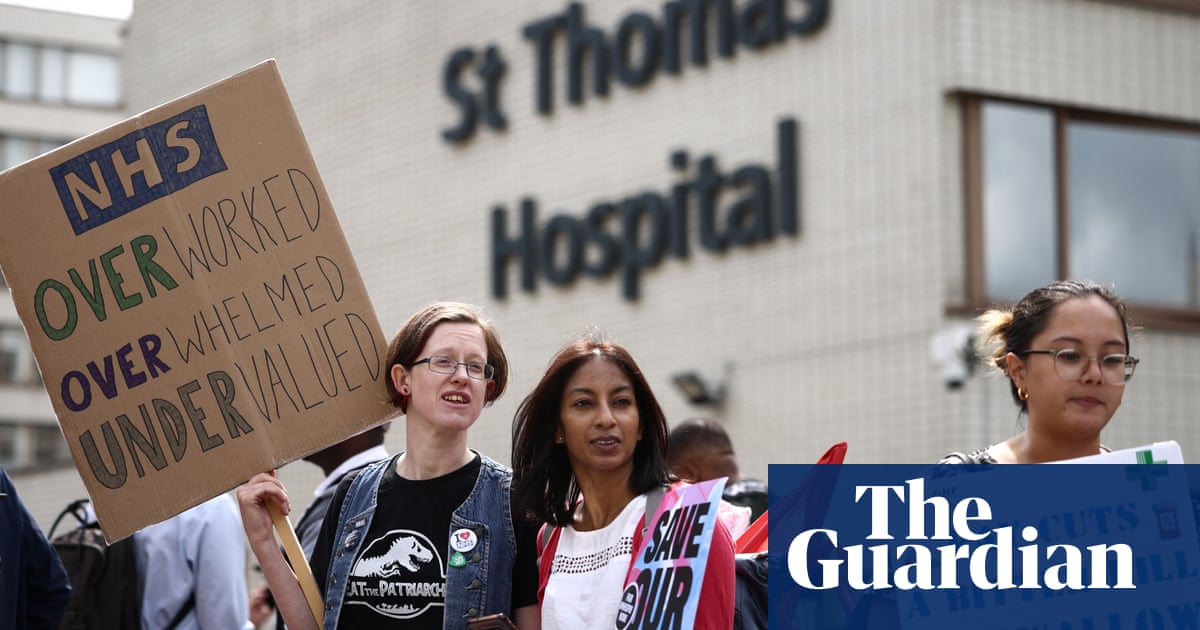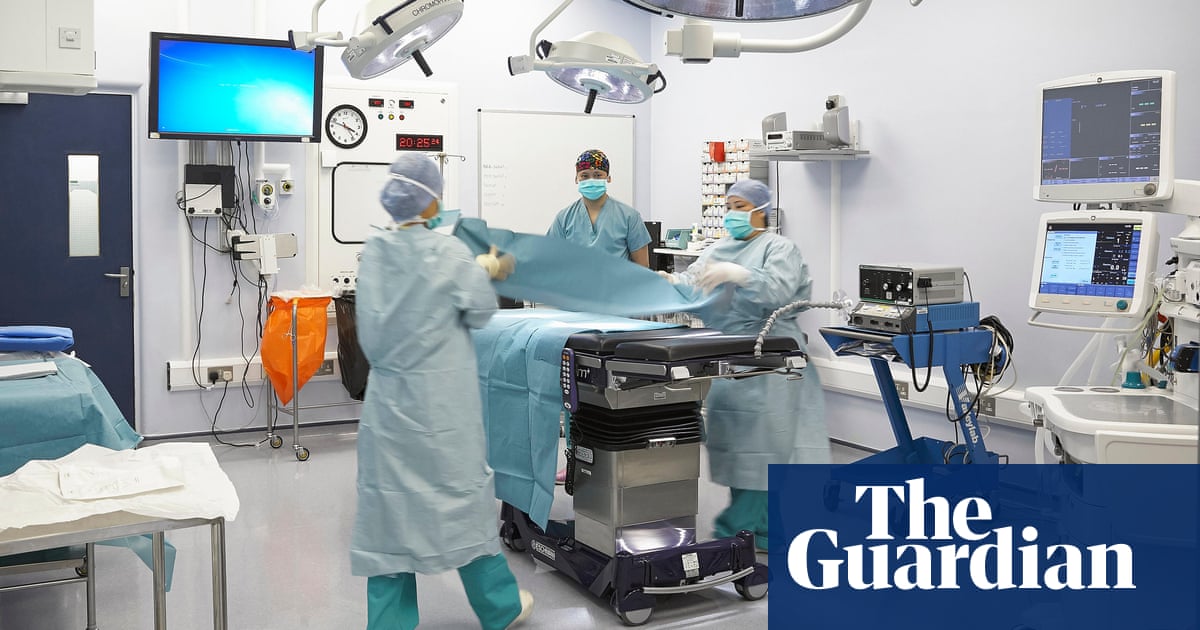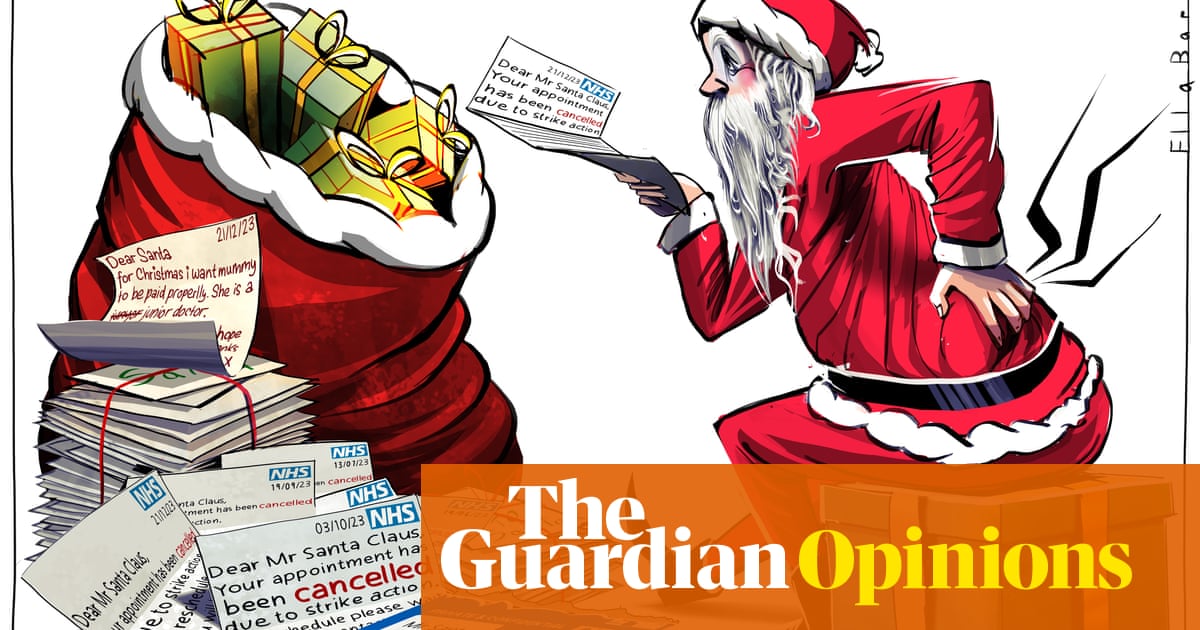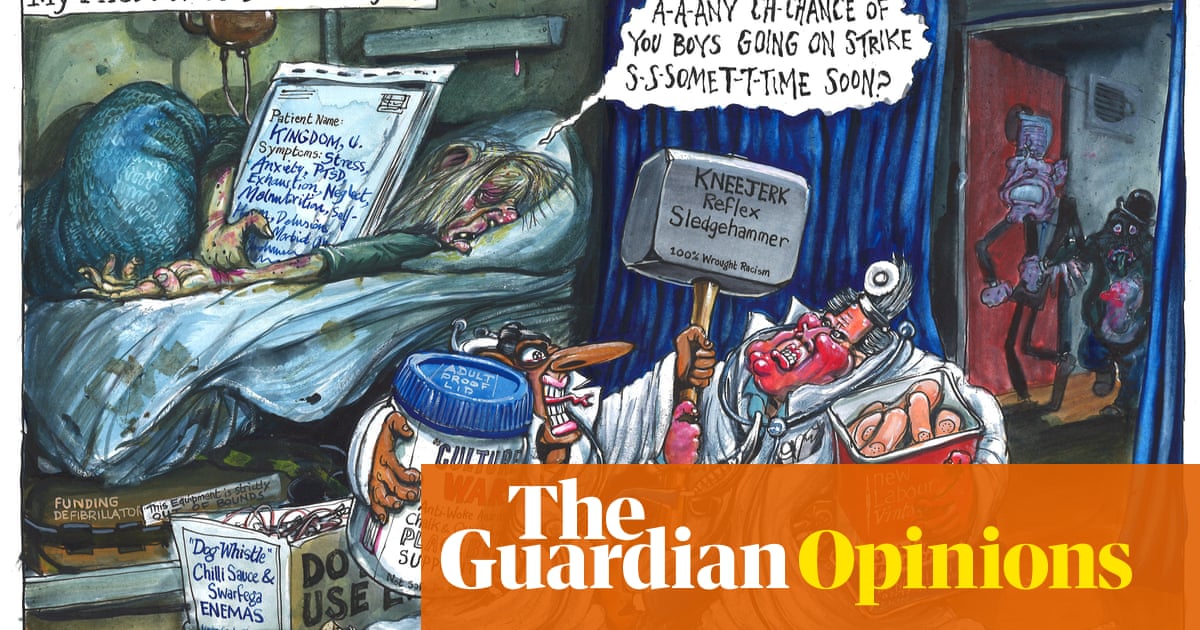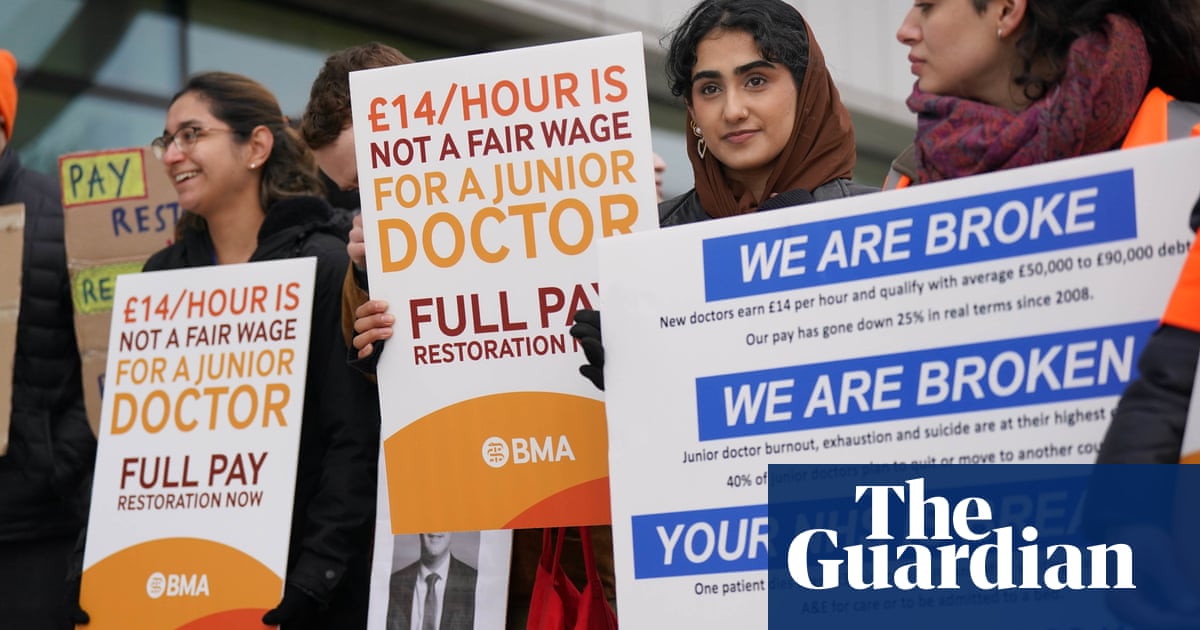
The four-day strike by junior doctors in England will have a “catastrophic impact” on NHS waiting lists, with up to 350,000 appointments and operations likely to be cancelled, the chief executive of the NHS Confederation has said.
Matthew Taylor said the industrial action this week posed risks to patient safety and called on the public to avoid “risky behaviour”.
“These strikes are going to have a catastrophic impact on the capacity of the NHS to recover services,” he told Sky News. “The health service has to meet high levels of demand at the same time as making inroads into that huge backlog that built up before Covid, but then built up much more during Covid.
“That’s a tough thing to do at the best of times – it’s impossible to do when strikes are continuing.”
Junior doctors are asking for a 35% pay rise after years of below-inflation increases. They have voted overwhelmingly – 98% on a 77% turnout in a ballot organised by the British Medical Association (BMA) – to strike.
The action in England after the Easter bank holiday weekend, from 6.59am on Tuesday until 6.59am on Saturday, will be the most disruptive in the 75-year history of the NHS.
Taylor, who heads the body that represents the healthcare system in England, Wales and Northern Ireland, said up to 350,000 appointments and operations would be cancelled this week.
He said he hoped everyone who needed urgent care would get it, but added: “There’s no point hiding the fact that there will be risks to patients – risks to patient safety, risks to patient dignity – as we’re not able to provide the kind of care that we want to.”
He called on the public to use NHS services responsibly.
He said: “We say to the public: obviously if you have a medical emergency you need to call 999, but if you have a concern then there’s 111, there’s the NHS website – try to use the NHS in the most responsible way you can.
“And I have to say this as well: try to avoid risky behaviour, because the NHS is not going to be able to provide the level of care that we want to provide.”
He urged the government and the BMA to start negotiations rather than engaging in a “battle of rhetoric”. “I think what’s the most depressing thing about the last few days is that, even as we become more acutely aware of the impact of these strikes, what we’re seeing is a battle of rhetoric rather than talks, and we need to see the two sides start talking.”
He said there seemed to have been no movement on negotiations over the last few days and that the government and unions should call in the Advisory, Conciliation and Arbitration Service.
He told BBC Breakfast: “What I’m saying now is we should consider asking the government and the trade unions to call in Acas, the conciliation service, to provide some basis for negotiations because, if anything, the positions seem to have hardened over the last couple of days.”
When asked whether this week’s action would be worse than the 72-hour walkouts last month, he said: “It will be worse, there’s no question.
“Not only is the action longer, it’s four days, but it’s sandwiched between the Easter bank holiday weekend and another weekend, and it’s a time when many consultants will have booked holiday. We have Ramadan, we have Passover as well; in a sense it’s a perfect storm in terms of the capacity of the health service.”
This article was amended on Monday 10 April to correct the standfirst, which previously referred to Matthew Taylor as an “NHS chief”.




